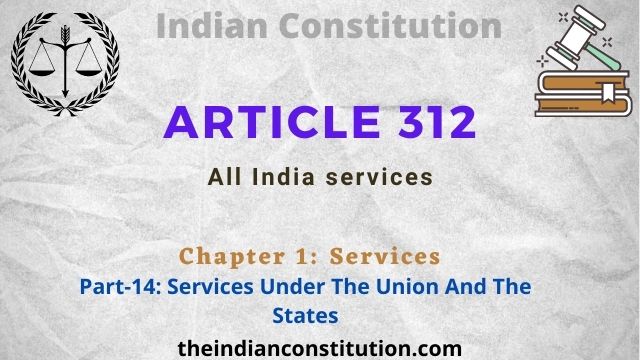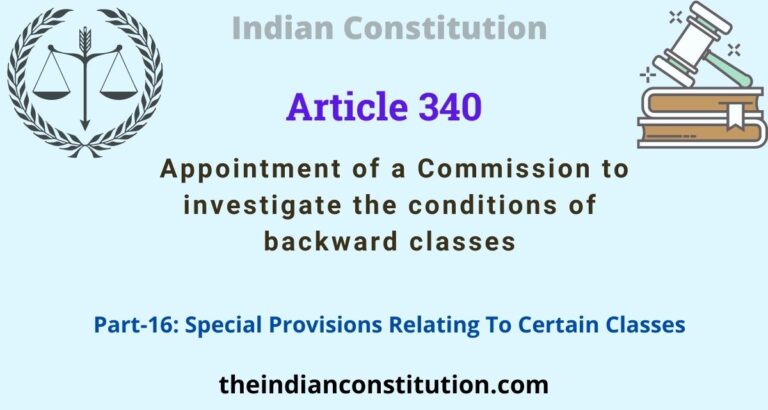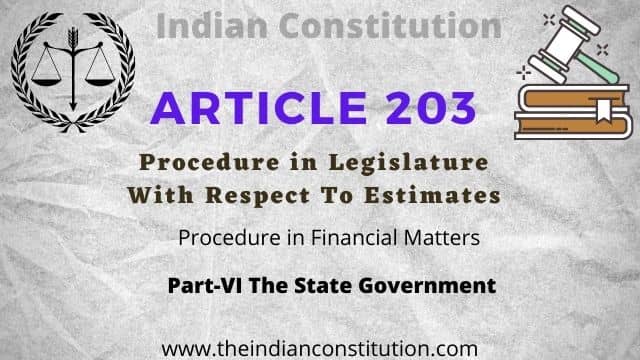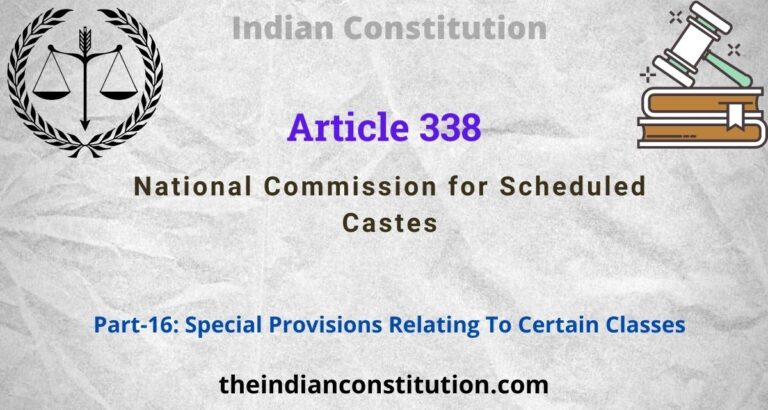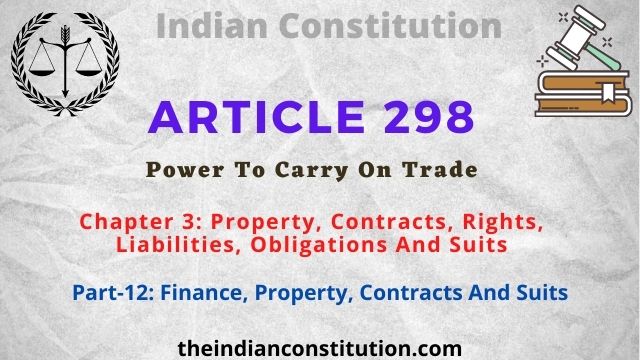Article 22 of The Indian Constitution: Protection Against Arrest
Article 21 and Article 22 complement each other. For the larger interest of the public and maintaining rule of law, there is a need to restrain some people’s rights. But on sound ground.
Article 22: Protection against arrest and detention in certain cases
22(1): No person who is arrested shall be detained in custody without being informed, as soon as may be, of the grounds for such arrest nor shall he be denied the right to consult, and to be defended by, a legal practitioner of his choice.
22(2): Every person who is arrested and detained in custody shall be produced before the nearest magistrate within a period of twenty-four hours of such arrest excluding the time necessary for the journey from the place of arrest to the court of the magistrate and no such person shall be detained in custody beyond the said period without the authority of a magistrate.
22(3): Nothing in clauses (1) and (2) shall apply—
(a) to any person who for the time being is an enemy alien; or
(b) to any person who is arrested or detained under any law providing for preventive detention.
22(4): No law providing for preventive detention shall authorise the detention of a person for a longer period than three months unless—[44th Constitutional Amendment 1978]
(4)(a): an Advisory Board consisting of persons who are, or have been, or are qualified to be appointed as, Judges of a High Court has reported before the expiration of the said period of three months that there is in its opinion sufficient cause for such detention:
Provided that nothing in this sub-clause shall authorise the detention of any person beyond the maximum period prescribed by any law made by Parliament under sub-clause (b) of clause (7); or
(4)(b): such person is detained in accordance with the provisions of any law made by Parliament under sub-clauses (a) and (b) of clause (7).
22(5): When any person is detained in pursuance of an order made under any law providing for preventive detention, the authority making the order shall, as soon as may be, communicate to such person the grounds on which the order has been made and shall afford him the earliest opportunity of making a representation against the order.
22(6): Nothing in clause (5) shall require the authority making any such order as is referred to in that clause to disclose facts which such authority considers to be against the public interest to disclose.
22(7): Parliament may by law prescribe—
22(7)(a): the circumstances under which, and the class or classes of cases in which, a person may be detained for a period longer than three months under any law providing for preventive detention without obtaining the opinion of an Advisory Board in accordance with the provisions of sub-clause (a) of clause (4);
22(7)(b): the maximum period for which any person may in any class or classes of cases be detained under any law providing for preventive detention; and
22(7)(c): the procedure to be followed by an Advisory Board in an inquiry under sub-clause (a) of clause (4).
-Text in Constitution
Explanation of Article 22
Article 22 grants protection to persons who are arrested or detained.
Note: Article 22 comes into play after arrest or detention, not before that.
Detention is of two types, namely, punitive and preventive.
Punitive detention is to punish a person for an offence committed by him after trial and conviction in a court.
Preventive detention means detention of a person without trial and conviction by a court, Its purpose is not to punish a person for a past offense but to prevent him from committing an offense in the near future.
Preventive detention is only a precautionary measure and based on suspicion.
Article 22 has two parts the 1st part deals with the cases of ordinary law and the 2nd part deals with the cases of preventive detention law.
Punitive detention is done in any ordinary law where preventive detention only is done in preventive detention laws.
Article 22(1):
Arrest Mean: arrest is legal and technical word, which mean to restrain (control).
All right of the arrested person shall be confined and he shall be live in the custody of the law.
This part of article provide two rights
(I) Right to be informed of the grounds of arrest
At a time of arrest, a detained person has the right to know on which ground he was an arrest. So that he defend himself and prepare for trial or apply for bail.
(II) Right to consult and be defended by a legal practitioner
Police can’t be denied an arrested person to consult or meet the legal practitioner of their choice. Like Advocate, Counselor, etc
In Hussainara Khatoon vs Home secretariate, Bihar 1979 case supreme court held that “If accuse can’t afford legal practitioner then he has the right to demand free legal practitioner from the state”.
The essence of this case right to free legal aid we observe in article 21 also.
Article 22(2):
This part of article provide two rights
(I) Right to be produced before a magistrate within 24 hours, excluding the journey time.
Example: Crime happen in Karol Bag, Delhi. Karol Bag police arrest accuse from Hyderabad then traveling time from Hyderabad to Delhi not calculated.
Or not calculate days which are declared official holiday or a public holiday like Sunday, New year, etc.
(II) Right to be released after 24 hours unless the magistrate authorizes further detention.
In any circumstances accused persons not to be in police custody for more than 24 hours. It can be in judicial custody only.
Article 22(3):
Some exception in above provision of protection against punitive detention.
These safeguards are not available to an enemy alien or a person arrested or detained under a preventive detention law.
The Supreme Court also ruled that the arrest and detention in the first part of Article 22 do not cover arrest under the orders of a court, civil arrest, arrest on failure to pay the income tax and deportation of an alien.
They apply only to an act of a criminal or quasi-criminal nature or some activity prejudicial to the public interest.
Clause 22(3)(b) says that if any person detains under the preventive detention act then they can not enjoy protection given under clause (1) and clause (2) of Article 22.
“In the present circumstances of the country, it may be necessary for the executive to detain a person who is tempering either with the public order or with the defense services of the country. In such a case, I don’t think that the exigency of the liberty of an individual shall be above the interests of the state.”
Dr. B R Ambedkar
Preventive Detention
This protection is available to both citizens as well as aliens and includes the following provision.
Article 22(4)
(I) The detention of a person cannot exceed three months.
The advisory board can increase detention time after sufficient proof up to describe in related law.
Advisory board consist High court judge or qualified for become HC judge.
(II) The detenu should be afforded an opportunity to make a representation against the detention order.
Article 22(5):
As rights are given under clause(1) for punitive detention that same rights given in clause(5) for preventive detention.
- Right to be informed (Duty of Police)
- Right of Representation (Duty of State)
Article 22(6):
If the authority finds information disclosure is against public interest then information not given to the accused.
Article 22(7):
This article gives power to parliament to make law, mention procedures for advisory board inquiry, and define detention time.
Power To Make Preventive Detention Law
The constitution has divided the legislative power with regard to preventive detention between the parliament and the state legislatures.
Both center and state legislature can make law.
Parliament
Parliament has exclusive authority to make law under the 7th Schedule center list for Defence, Security, and Foreign Affair of India.
State Legislature
The state legislature can make law with parliament concurrently under the 7th Schedule concurrent list for Public order and the maintenance of supplies, Security of state, and services essential to the community.
List of Preventive Detention Laws
- Preventive Detention Act, 1950. Expired in 1969.
- Maintenance of Internal Security Act (MISA), 1971. Repealed in 1978.
- Conservation of Foreign Exchange and Prevention of Smuggling Activities Act (COFEPOSA), 1974.
- National Security Act (NASA), 1980
- Prevention of Black-marketing and Maintenance of Supplies of Essential Commodities Act (PBMSECA), 1980.
- Terrorist and Disruptive Activities (Prevention) Act (TADA), 1985. Repealed in 1995.
- Prevention of Illicit Traffic in Narcotic Drugs and Psychotropic Substances Act (PITNDPSA), 1988.
- Prevention of Terrorism Act (POTA), 2002. Repealed in 2004.
The 44th Amendment Act of 1978 has reduced the period of detention without obtaining the opinion of the advisory board from three to two months.
However, this provision has not yet been brought into force, hence, the original period of three months still continues.
Criticism
In the world, in all of the democratic country, only India has this preventive detention provision.
In the USA there is no such law and in the UK such law available in an emergency situation. where India has provisions in the constitution.
